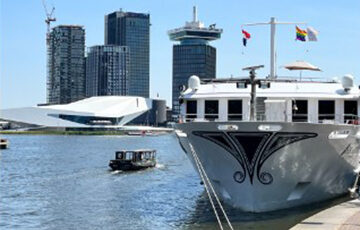
Non-compete clauses are common provisions in commercial agency contracts under Dutch law. They are designed to protect the principal’s business interests by preventing an agent from engaging in competing activities after the termination of the agency agreement. However, these clauses are not without restrictions. In the Netherlands, strict legal requirements determine when and how such clauses can be used effectively.
Does a non-compete clause apply in a Dutch commercial agency contract?
A non-compete clause in an agency contract under Dutch law is a clause that restricts the commercial agent’s freedom to work in a competitive capacity after the agency contract ends. According to Article 7:443 of the Civil Code (BW), parties may agree such a clause in writing. However, this clause is only valid if it meets certain conditions:
- It must be in writing (Art. 7:443 (1) (a) BW).
- It may only relate to the type of goods or services for which the commercial agent had the representation and to the territory or clientele entrusted to him (Art. 7:443 paragraph 1 BW).
- The clause must be reasonable in duration and geographical scope.
An important aspect of the non-competition clause is that it does not apply to customers belonging to the agent’s own customer base, as evidenced by a specific case in which the court held that the non-competition clause did not apply to customers belonging to the agent’s own customer base.
It is also important that the agency agreement clearly specifies which activities are covered by the non-competition clause. In another case, it was held that the non-competition clause did not apply to work performed on the basis of a service agreement and individual assignments, as these were not covered by the agency agreement. It is also important to note that a non-competition clause may be void if it is drafted too broadly or does not meet legal requirements. For example, a non-competition clause that does not cover the territory or clientele that was entrusted to the agent may be declared invalid.
In summary, a non-competition clause in an agency agreement is subject to strict legal requirements and must be drafted carefully to be legally valid. It is essential that the clause be specific and reasonable in its limitations and that it be in writing.
Reasonableness and Proportionality
What principles guide Dutch courts in evaluating non-compete clauses?
Dutch courts assess non-compete clauses through the lens of reasonableness and proportionality. This means that while the principal’s business interests deserve protection, the agent’s ability to earn a livelihood should not be unduly restricted. The scope, duration, and geographical reach of the non-compete clause must be proportional to the legitimate interests it aims to protect.
For instance, if a non-compete clause is found to be excessively restrictive—such as covering an unnecessarily broad geographic area or customer base—the court may either narrow the scope of the clause or declare it completely unenforceable. The balance between protecting commercial interests and ensuring fair freedom for agents is central to the Dutch approach.
Requirements for Validity: When Is a Non-Compete Enforceable?
Must It Be in Writing?
The requirement for a written clause is not merely a formality—it plays a significant role in protecting both parties. By including the non-compete agreement in writing, both the principal and the agent acknowledge and accept the conditions that apply post-contract termination. Oral agreements are insufficient, and such provisions must be clearly documented in the agency contract itself.
How Long Can a Non-Compete Last?
Dutch law allows a maximum duration of two years for non-compete clauses in agency contracts. This time limit is intended to ensure that the clause does not create an unreasonable barrier for the agent to seek new opportunities in the marketplace. Anything exceeding this two-year period is generally considered unenforceable under Article 7:443Article 7:443.
Compensation: Is the Agent Entitled to Payment under Dutch law?
Is compensation required for non-compete clauses in Dutch agency contracts?
Unlike non-compete clauses in employment contracts, where financial compensation may sometimes be required, there is no statutory obligation to provide compensation for non-compete clauses in agency agreements. However, offering compensation to an agent can strengthen the enforceability of the non-compete provision, especially if the clause poses a significant limitation on their ability to secure similar roles.
Compensation can serve as a signal that the principal recognizes the hardship the agent may face due to the restrictions imposed. This can make the non-compete more palatable and legally sustainable, particularly if challenged in court.
Remedies and Enforcement: What Happens If a Non-Compete Is Breached under Dutch law?
What legal remedies are available if a non-compete clause is breached?
If an agent breaches a valid non-compete clause, the principal has several remedies available under Dutch law:
- Injunction: The principal can seek an injunction to immediately stop the agent from engaging in the competing activity. This is often the fastest remedy to prevent ongoing harm.
- Damages: The principal may also claim damages to compensate for any financial losses suffered as a result of the breach. Calculating damages will depend on the actual harm caused by the competing activities.
- Contractual Penalties: Many agency contracts include a penalty clause, specifying a fixed sum payable by the agent for each violation. Such penalties can deter breaches and provide an easier route for compensation without the need for complex calculations.
These remedies provide the principal with a robust set of tools to enforce compliance with non-compete clauses.
Geographical and Sectoral Limits: How Specific Should the Clause Be under Dutch law?
What geographical and sectoral limits should a non-compete clause have?
A key requirement for a non-compete clause in Dutch agency contracts is that it must be specific to the geographical area or customer group assigned to the agent. This ensures that the clause is not overly restrictive and only serves to protect the principal’s legitimate business interests.
For example, if an agent was responsible for sales in Amsterdam, a non-compete clause covering the entire country of the Netherlands might be considered too broad unless clearly justified. Similarly, if the agent sold medical equipment, the clause should not restrict them from working in unrelated sectors like consumer electronics.
Practical Tips for Principals and Agents under Dutch law
How can principals ensure that a non-compete clause is enforceable?
For principals seeking to include a non-compete clause in their agency agreements, careful drafting is crucial. Here are some practical tips:
- Define Scope Clearly: Specify the goods or services, geographical areas, and customer groups to which the non-compete applies.
- Keep It Proportional: Ensure the restrictions are proportional to the need to protect legitimate interests. Avoid overly broad clauses that may not hold up in court.
- Consider Compensation: Offering compensation can increase the enforceability of the clause, particularly if it places a significant burden on the agent’s ability to find new work.
What should agents watch out for in non-compete clauses?
Agents, on the other hand, should take the following steps before agreeing to a non-compete clause:
- Understand the Restrictions: Carefully review the geographical and sectoral limits of the clause. If it seems too restrictive, negotiate for a narrower scope.
- Seek Legal Advice: Consult a legal professional to ensure that the clause complies with Dutch law and does not unnecessarily limit future opportunities.
Recent Developments: Do Changes in Non-Compete Law Affect Agency Contracts?
Are the upcoming changes to Dutch non-compete laws relevant for agency contracts?
Recent discussions about changes to Dutch non-compete laws, expected to take effect in 2025, have raised questions about their applicability to agency contracts. Notably, these changes are specific to employment contracts and do not directly affect commercial agency agreements governed by Article 7:443 DCC
The upcoming changes aim to make non-compete clauses in employment contracts more employee-friendly, with stricter rules on their use and enforcement. However, for agency contracts, the existing legal requirements remain applicable. Principals and agents should therefore continue to follow the rules set out in Article 7:443 DCC.
What should principals and agents consider regarding non-compete clauses?
In conclusion, non-compete clauses are a powerful tool in commercial agency contracts under Dutch law, but they must be drafted with care. To ensure enforceability, the clause should be specific, reasonable, and proportional to the business interests at stake. Both principals and agents need to be aware of their respective rights and obligations under Article 7:443 of the Dutch Civil Code.
- For Principals: Ensure that the non-compete clause protects your legitimate business interests without imposing undue restrictions on the agent. Consider offering compensation to strengthen the clause.
- For Agents: Be vigilant about the scope of the clause, its geographical limits, and its duration. If necessary, negotiate to ensure that your ability to work post-termination is not unfairly restricted.
By understanding these key principles and requirements, both parties can effectively navigate the use of non-compete clauses in Dutch agency contracts, minimizing disputes and ensuring a fair balance of interests.
Dutch contract lawyers for agency law
In summary, a non-competition clause in an agency agreement is subject to strict legal requirements and must be drafted carefully to be legally valid. It is essential that the clause be specific and reasonable in its limitations and that it be in writing.
For any legal inquiries or support in the Netherlands regarding non-compete clauses in Dutch commercial agency contracts, please feel free to contact our adept team at MAAK Advocaten. Committed to excellence, our Dutch lawyers provide superior legal services tailored to your distinct needs. You can reach our law firm in the Netherlands through our website, by email, or phone.
Our approachable and skilled staff at MAAK Attorneys will be delighted to assist you, arranging a meeting with one of our specialized attorneys in the Netherlands. Whether you need a Dutch litigation attorney or a Dutch contract lawyer in Amsterdam, we are eager to guide you through the legal intricacies and secure the most favorable results for your situation.
Contact details
Remko Roosjen | attorney-at-law (‘advocaat’)
+31 (0)20 – 210 31 38
remko.roosjen@maakadvocaten.nl
The information on this legal blog serves purely for educational purposes and should not be taken as specific legal guidance. While we endeavor to maintain accurate and current information, we do not assert its absolute completeness or relevance to your particular situation. For advice tailored to your legal concerns, we urge you to engage with a licensed attorney. Please note that the blog’s content may change without notice, and we are not liable for any inaccuracies or missing information.







